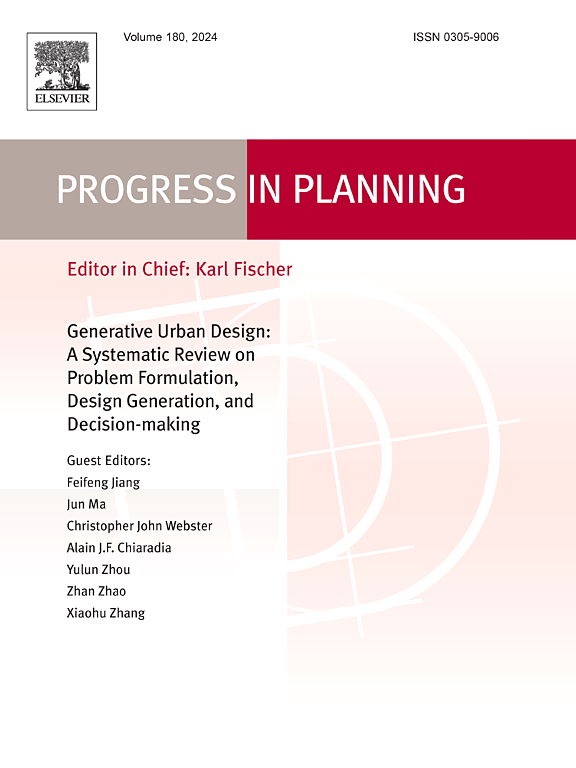当代巴西贫民窟中有争议的空间占用中的租金,房地产和城市改革的属性
IF 5.7
1区 经济学
Q1 ENVIRONMENTAL STUDIES
引用次数: 0
摘要
本文以巴西为背景,为关注南半球规划、城市研究和非正式住区或贫民窟改造的广大读者提供了三个关键贡献。首先,它参与并扩展了关于20世纪贫民窟中国家、市场和社会占用空间的作用的理论辩论,旨在与当代非正式住区的复杂性和异质性建立概念基础和经验信息对话。其次,根据在本文章由计算机程序翻译,如有差异,请以英文原文为准。
The properties of rent, real estate and urban reform in the contested appropriation of space in contemporary Brazilian favelas
Grounded in the Brazilian context, this paper offers three key contributions to a broader audience interested in planning, urban studies, and informal settlements or favela upgrading in the Global South. First, it engages with and expands upon theoretical debates concerning the role of the state, the market, and the social appropriation of space in 20th-century favelas, aiming to establish a conceptually grounded and empirically informed dialogue with the complexity and heterogeneity of contemporary informal settlements. Second, drawing on fieldwork conducted in the Heliópolis favela in São Paulo, we examine how this settlement diverges both from earlier representations of itself and from prevailing narratives about metropolitan favelas in Brazil. Rather than offering a conventional case study meant to illustrate how broader theory manifests “on the ground,” our research contributes to wider discussions about the diverse characteristics—or “properties”—of contemporary urban informality. Third, while anchored in the historical and geographical specificities of Brazilian favelas, the paper invites broader reflections on the limits and possibilities of rights-based and reform-oriented urban planning in the Global South.
求助全文
通过发布文献求助,成功后即可免费获取论文全文。
去求助
来源期刊

Progress in Planning
Multiple-
CiteScore
10.70
自引率
1.60%
发文量
26
审稿时长
34 days
期刊介绍:
Progress in Planning is a multidisciplinary journal of research monographs offering a convenient and rapid outlet for extended papers in the field of spatial and environmental planning. Each issue comprises a single monograph of between 25,000 and 35,000 words. The journal is fully peer reviewed, has a global readership, and has been in publication since 1972.
 求助内容:
求助内容: 应助结果提醒方式:
应助结果提醒方式:


